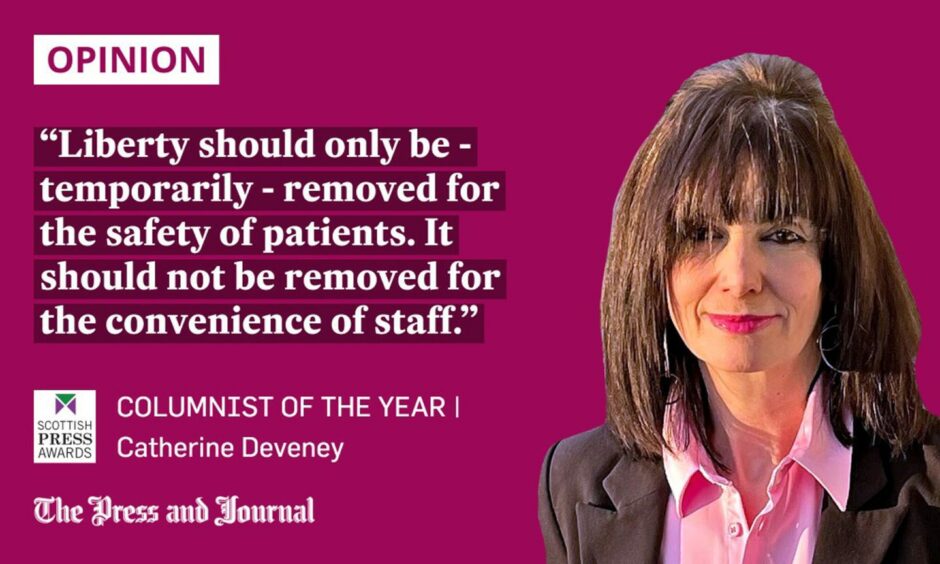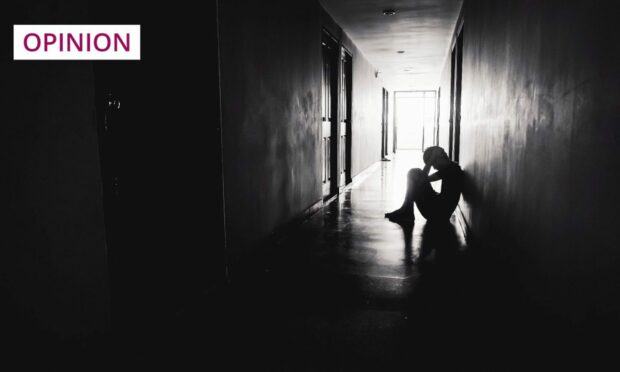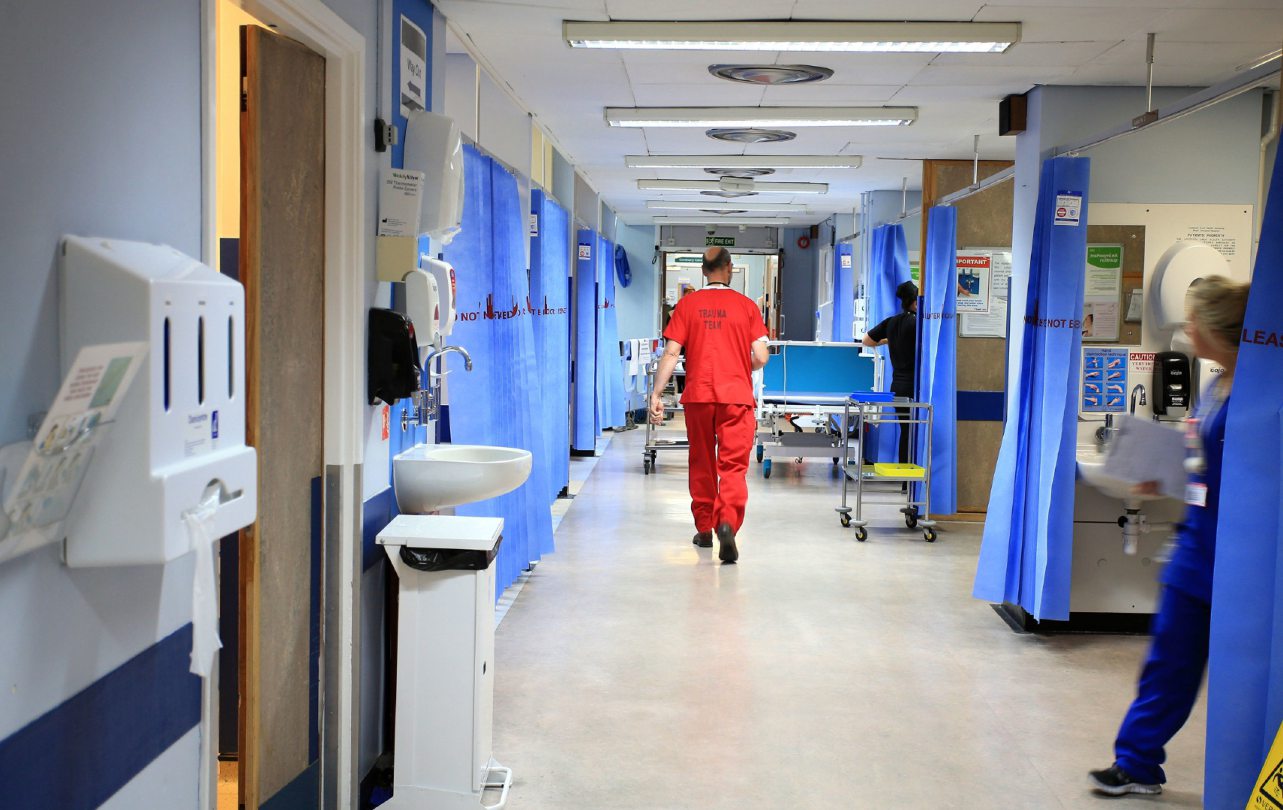In the end, it was the sheer, grinding cruelty in the secretly filmed BBC exposure of mental health services that stayed with the viewer: a stomach-churning cat-and-mouse power game, where staff dangled patients on the end of a string, twirling them randomly for want of anything more constructive to do, watching them circle at the rope end in confusion.
The “support worker” who kicked a patient out of a chair so she could sprawl across it, who locked a patient behind a door and laughed through the window at her distress; the nurse who dismissed an ill patient as a “cancer in the ward” that needed cut out.
The cancer comparison became strangely relevant, raising, as it did, the disparity between physical and mental health. Would cancer patients be pinched, prodded and thrown to the floor? Would they be psychologically tormented, left alone in a room to bang their heads against the wall in distress?

Would cancer staff treat patients with so little empathy and respect that their condition deteriorated? We know the answer. Cancer patients are vulnerable – but the nature of their condition does not leave them voiceless.
The facility filmed was in Manchester, but could have been anywhere. In Scotland, reports in recent weeks suggest we, too, must re-examine attitudes to mental health.
Practice falls far short of policy
An independent review for the Scottish Government, led by John Scott KC and published last week, recommended a complete overhaul both of services and culture, using a human rights-based approach. It’s an approach we are supposed to have already: it was recommended in Scotland’s 10-year mental health strategy for 2017 to 2027, a plan we are halfway through.
But, as the Mental Welfare Commission for Scotland pointed out last week, there has been a “collective failure” in Scotland’s health service to implement existing policies and procedures when dealing with mental health patients, particularly those suffering from drug and alcohol problems.
When it comes to addiction, Scotland is the sick man of Europe. We have ploughed millions of pounds into addressing the issue. But practice falls far short of policy.
Addicts referred to psychological services in Scotland often get turned down until their addiction is dealt with. Yet, addiction is often the result of trauma. It’s a desperate cycle that traps sufferers in the spokes of the wheel.
Sort your tumour out before I give you cancer treatment? I think not
Which do you cure first? Addicts are often expected to sort their own trauma out before a psychologist will see them. Stop drinking and you can have an appointment. Get your drug intake down and we will let you into rehab.
Sort your tumour out before I give you cancer treatment? I think not.
Patients need a voice
Patients in the Manchester facility were suffering from a broad spectrum of disorders. Schizophrenia. Depression. Self-harm. But, even in their illness, they knew that they would not get better where they were, because the culture was all wrong.
“It makes you worse,” said one young woman, voice devoid of hope. “What is it about this place that makes you worse?” She was asked. “Everything,” she replied, displaying more insight than the staff.
The BBC’s footage highlighted the toxicity of a culture gone wrong, but also the need for advocacy in our health service. When patients told their families what was happening, staff dismissed it as “just their illness”.
Their families believed them, until they sat, tears streaming down their faces with guilt and sadness, watching the evidence. Their loved ones were fragile, vulnerable and powerless. Their “treatment” made them more so.
We have always been too willing to lock the mentally ill out of sight
The use of “seclusion” in Manchester, where patients were put into isolation for weeks at a time, had doubled in recent years. Scotland, too, according to John Scott’s report, is overusing restraint and seclusion.
Many do wonderful, caring work. Others clearly use power as a release for their resentment and boredom
We have always been too willing to lock the mentally ill out of sight. Liberty should only be – temporarily – removed for the safety of patients. It should not be removed for the convenience of staff.
To change any of this, we need to address the crisis in the recruitment of staff for caring roles. A report this week from the Nuffield Trust and the Health Foundation highlighted the “perilous” lack of home care workers. Why? Because we don’t care enough to pay enough – and that means staff don’t always care enough either.
Certainly, we need more investment and training. But we also need things that cost nothing. Respect. Empathy. Understanding.
There IS a cancer that needs cut out of our mental health services – but it’s not sick patients. Staff are often on minimum wages. Many do wonderful, caring work. Others clearly use power as a release for their resentment and boredom.
Is it not staggering that we are content to leave society’s most vulnerable – our children, the elderly, the mentally ill – to those we pay least, many of whom take the job because they can’t get anything else?
It’s time to rethink. Looking after people is a vital vocation, not an economic last resort.
Catherine Deveney is an award-winning investigative journalist, novelist and television presenter, and Scottish Newspaper Columnist of the Year 2022













Conversation